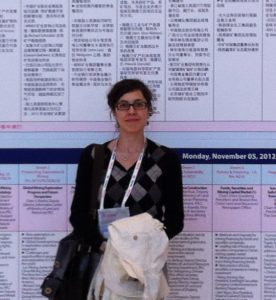Memo #30
Pascale Massot
 Canadians know that Chinese investment is coming. Since the summer of 2009, five Chinese state investments in the energy and mining sectors have totaled more than $10 billion (CDN).
Canadians know that Chinese investment is coming. Since the summer of 2009, five Chinese state investments in the energy and mining sectors have totaled more than $10 billion (CDN).
Canadians are also nervous. A recent poll by the Asia Pacific Foundation of Canada revealed that only 18% support a Chinese state‐owned enterprise buying a controlling stake in a Canadian company. The reality is that the main Chinese investors are state-owned, including China Investment Corporation, Sinopec Corp., PetroChina, and CRCC-Tongguan Investment Co.
The worry is that state investments might mix economic and political goals. Saskatchewan’s Energy and Resources Minister has stated concerns about a possible takeover of Canada-owned PotashCorp by a Chinese state-owned company, Sinochem Corporation. A recent report commissioned by the Government of Saskatchewan also highlights the adverse risks to the province of a potential takeover by a state-owned enterprise from an importer country. China has an interest in low potash prices and Canada wants high ones.
The Investment Canada Act does not provide clear guidelines in evaluating whether foreign investments are detrimental to Canadian national security, nor does it discriminate on the basis of ownership. The Minister of Industry and the Cabinet of Canada have full discretionary power.
The result is uncertainty in both Beijing and Ottawa.
A better approach depends upon recognizing the distinctiveness as well as the diversity of structures and strategies of Chinese (or other) state-owned investment funds. For instance, China Investment Corporation strives to present itself as an apolitical, transparent, and responsible investor with a commitment to good governance and financially motivated investments. Conversely, the State Administration of Foreign Exchange Investment Company resists demands for more transparency. It was behind the 2008 agreement that included the purchase of $300 million (USD) worth of Costa Rican bonds in exchange for the cessation of Costa Rican diplomatic ties with Taipei.
One important international initiative in this regard is the work of the International Monetary Fund-inspired International Forum of Sovereign Wealth Funds (IFSWF). The IFSWF is pushing for the implementation and dissemination of 24 Generally Accepted Principles and Practices for state investment funds.
Canada is represented by the Alberta Heritage Savings Trust Fund, one of 24 members of the IFSWF, and China is represented by the China Investment Corporation. The IFSWF has produced a clear and relevant set of guidelines that could help Ottawa make more transparent and predictable decisions about foreign state investments in Canada.
About the Author:
Pascale Massot is a PhD student in the Department of Political Science at the The University of British Columbia.
Links:
- National Opinion Poll: Canadian Views on Asia, Asia Pacific Foundation of Canada, April 2010
- AimCo approached to join Potash Corp. bid, Global Saskatoon, Sept 2010
- Final Report: Saskatchewan in the Spotlight: Acquisition of Potash Corporation of Saskatchewan Inc. – Risks and Opportunities, The Conference Board of Canada, October 2010
- Generally Accepted Principles and Practices (GAPP) – Santiago Principles, International Working Group of Sovereign Wealth Funds, October 2008